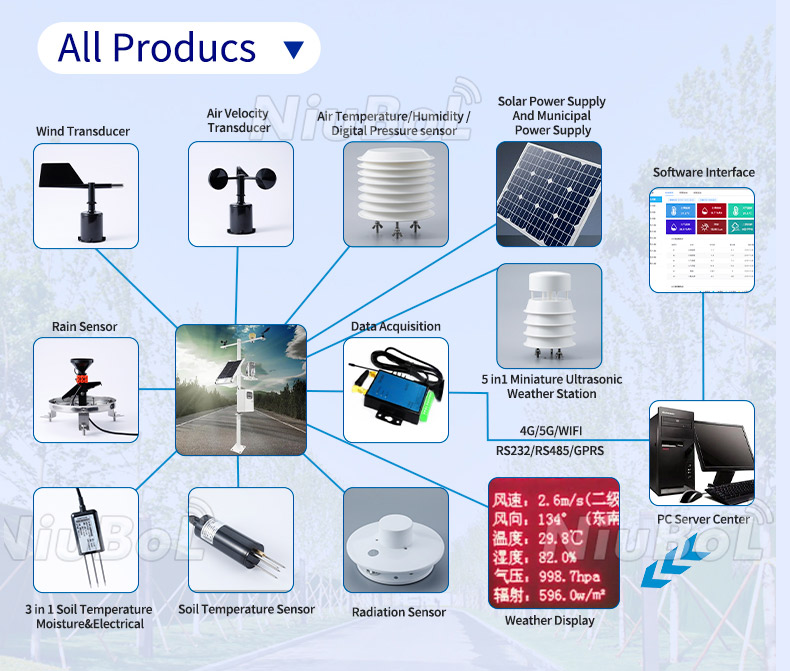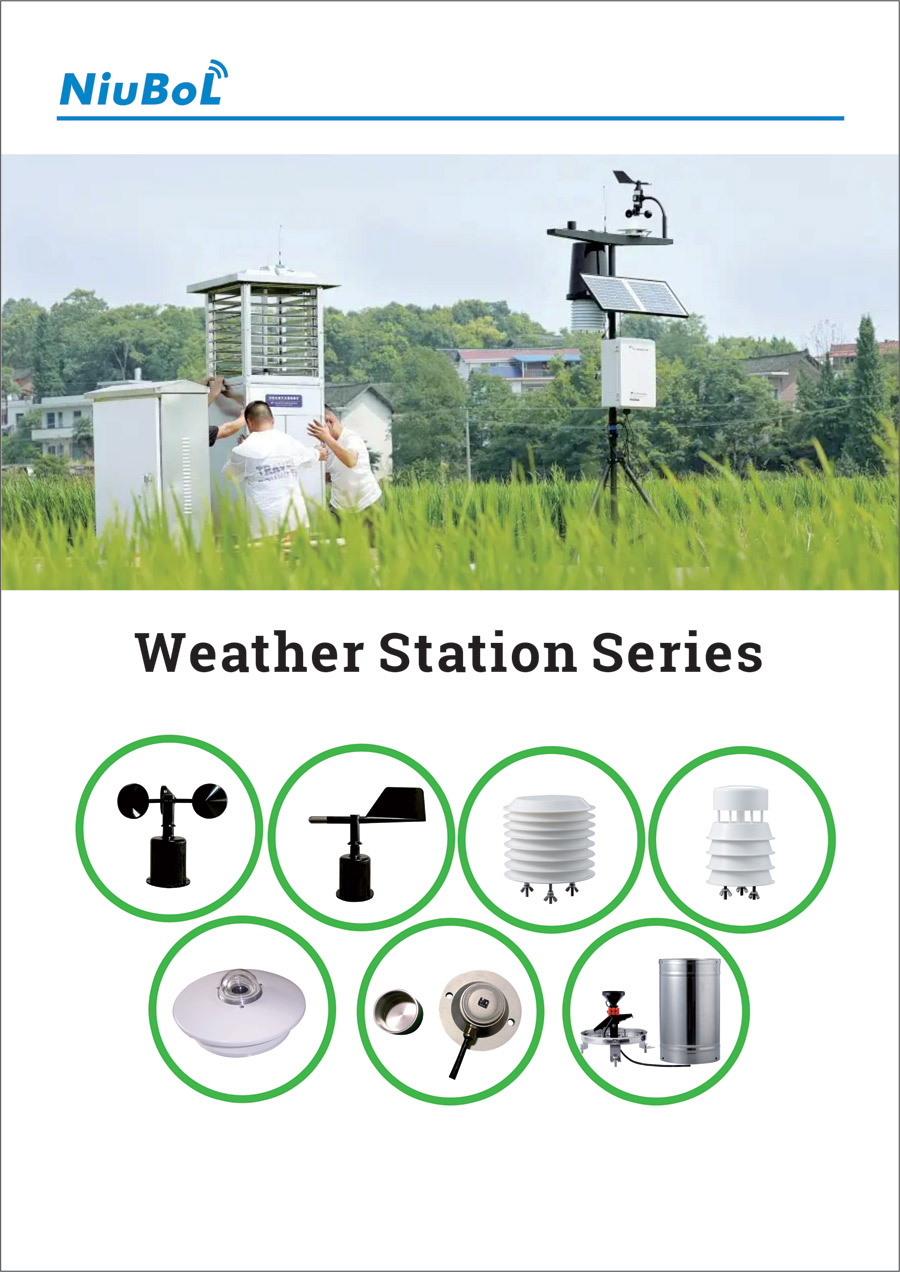

— Blogs —
—Products—
 Consumer hotline +8618073152920
Consumer hotline +8618073152920 WhatsApp:+8615367865107
Address:Room 102, District D, Houhu Industrial Park, Yuelu District, Changsha City, Hunan Province, China
Product knowledge
Time:2024-01-31 13:59:10 Popularity:3244
Weather stations are facilities used to observe and record meteorological data. According to the usage, installation and accuracy, weather stations can be classified into portable weather stations, high-precision weather stations, highway weather stations, forest fire hazard weather stations and campus weather stations, electric power weather stations, photovoltaic weather stations, scenic weather stations, community weather stations and so on.
The main task of meteorological observation station is to observe and record various meteorological data, including wind direction, wind speed, temperature, humidity, barometric pressure, rainfall and other parameters. These data can help people understand the weather system, climate change and other aspects, and provide an important basis for disaster warning, agricultural services, urban planning, scientific research and other fields.
1. Purpose: Determine the primary purpose of the weather station. Are you interested in monitoring weather conditions for personal use, agriculture, research, or professional meteorological purposes? The intended use will influence the features and accuracy requirements of the weather station.
2. Location: Consider the location where the weather station will be installed. Different environments may require specific features such as resistance to extreme temperatures, wind, or moisture. For example, coastal areas may require weather stations with corrosion-resistant materials.
3. Measurement Parameters: Identify the specific meteorological parameters you wish to measure. Common parameters include temperature, humidity, barometric pressure, wind speed and direction, rainfall, and solar radiation. Ensure that the weather station can measure the parameters relevant to your needs.
4. Accuracy and Precision: Evaluate the accuracy and precision of the weather station's sensors. Higher accuracy and precision are essential for scientific research and professional applications, while a basic level of accuracy may be sufficient for personal use.
5. Data Logging and Connectivity: Consider whether you need data logging capabilities to store historical weather data. Additionally, assess the connectivity options such as Wi-Fi, Bluetooth, or USB for data transfer to a computer or online platforms.
6. Power Source: Determine the power source for the weather station. Some models are battery-powered, while others may have solar panels or require an AC power source. Consider the availability of power at the installation site.
7. Ease of Installation and Maintenance: Look for a weather station that is easy to install and maintain. Consider the required mounting hardware, wiring, and accessibility for maintenance tasks such as sensor calibration.

8. Support and Warranty: Check the availability of technical support, user manuals, and warranty coverage. A reliable manufacturer or vendor should offer support and a warranty for the weather station.
9. Budget: Establish a budget for the weather station, considering the features and quality that align with your requirements. Higher-end weather stations with advanced sensors and data logging capabilities may be more expensive.
10. Other functions: Some weather stations also have other functions, such as data storage, remote transmission and so on. It is necessary to choose other required functions according to the actual needs.

By carefully evaluating these factors, you can select a weather station that best suits your specific needs and provides accurate meteorological data for your intended applications.
Prev:What are the instruments used in weather station?
Next:How Weather Data Collector Transfers Data to Cloud Platforms
Related recommendations
Sensors & Weather Stations Catalog
Agriculture Sensors and Weather Stations Catalog-NiuBoL.pdf
Weather Stations Catalog-NiuBoL.pdf
Related products
 Combined air temperature and relative humidity sensor
Combined air temperature and relative humidity sensor Soil Moisture Temperature sensor for irrigation
Soil Moisture Temperature sensor for irrigation Soil pH sensor RS485 soil Testing instrument soil ph meter for agriculture
Soil pH sensor RS485 soil Testing instrument soil ph meter for agriculture Wind Speed sensor Output Modbus/RS485/Analog/0-5V/4-20mA
Wind Speed sensor Output Modbus/RS485/Analog/0-5V/4-20mA Tipping bucket rain gauge for weather monitoring auto rainfall sensor RS485/Outdoor/stainless steel
Tipping bucket rain gauge for weather monitoring auto rainfall sensor RS485/Outdoor/stainless steel Pyranometer Solar Radiation Sensor 4-20mA/RS485
Pyranometer Solar Radiation Sensor 4-20mA/RS485
Screenshot, WhatsApp to identify the QR code
WhatsApp number:+8615367865107
(Click on WhatsApp to copy and add friends)
